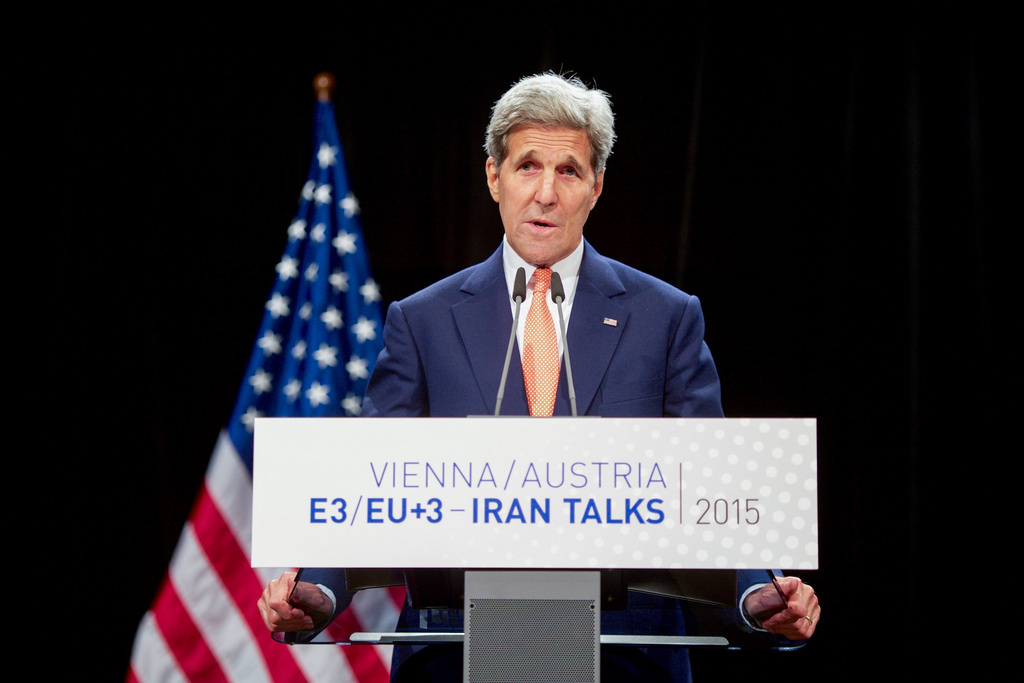
The Iran Nuclear Deal and the Middle East
After the signing of the historic nuclear deal between the P5+1 nations and Iran, regional actors denounced the deal for fear it spelled a new regional balance of power, and added to the Islamic Republic’s regional influence.
The U.S.’s largest allies in the Middle East were quick to shun the deal. Israeli Prime Minister Benjamin Netanyahu called the deal a “historic mistake,” and Saudi Arabia’s former head of intelligence and ex-ambassador to the United States said the deal would “wreak havoc in the Middle East.” While both countries have long showed their opposition to US cooperation with Iran, the nuclear deal is in the best interest of both the regional and international communities.
Despite their fears, the nuclear agreement was a longstanding foreign policy goal of the United States. Iran, submitting to restrictions on its nuclear program, as well as regulations that include inspections, and the dismantling of many of its centrifuges, will soon receive sanctions relief to the tune of $100 billion.
Opponents of the deal have been sure to note that this figure will fund Iran’s nefarious activities in the region, yet experts have discredited such claims. The CIA believes the deal will do little to empower and embolden Iran regionally. In a newly issued report, the CIA posits that much of the $100 billion will be put towards the struggling Iranian economy rather than Iran’s regional efforts.
Furthermore, Iran’s support to its allies – including Hezbollah, Houthi rebels, and the Syrian regime – would do little to disrupt the current balance of power between Iran, Saudi Arabia, and Israel.
Opponents mainly fear the non-nuclear consequences of the deal, including the lifting of the existing arms embargo on Iran within five years. In an effort to alleviate the fears of Gulf States and Israel, Secretary of Defense Ashton Carter travelled throughout the Middle East last week.
Carter seems to have managed to sell the deal to the Saudis, who now herald the deal as a “poisoned chalice” for the Iranians. Reports indicate that the Saudis are more concerned with US support in regional crises such as the situation in Yemen, the Syrian civil war, and the fight against ISIS than battling the Iran nuclear deal.
Other gulf states have come out to bless the Iran deal as well. Both the UAE and Kuwait have voiced cautious optimism for the deal by congratulating Iran on the signing of the deal. While it seems the Gulf States have come to terms with the deal, and have given the United States a wary blessing, Israel has yet to follow suit.
With the Iran nuclear deal now in the hands of Congress, and President Obama’s pledge to veto a rejection of the bill, international support for the Administration’s deal is needed more than ever. With Israel, still unconvinced of the deals ability to curb Iran’s path to a bomb, the administration will face a tough battle in the coming weeks.
Secretary of State John Kerry defended the deal on Capitol Hill last week. In a hearing before the Senate Foreign Relations Committee, Kerry pressed that the deal was the best deal it could have been, and reminded the committee that no alternative existed. Secretary Kerry went on to say that the rest of the world has accepted the deal, and Congress should not undermine the efforts of the negotiations.
Earlier today, Secretary Kerry testified before the House Foreign Relations Committee, once again emphasizing the US interest in ensuring the approval of the deal. Touching on national security, Kerry said:
“If you kill the deal, you are not making America safer.”
The repercussions of rejecting the deal will leave the US and its regional allies as the biggest losers in the negotiations. With UN backing, and members of the P5+1 on board, the deal will go on with or without US involvement. Kerry went on to say:
“If we walk away, we walk away alone. Our partners are not going to be with us. Instead, they’ll walk away from the tough multilateral sanctions that brought Iran to the negotiating table in the first place.”
While opponents have dug in against the deal, the deal serves the interest of the United States and its allies in the region. The deal cuts Iran’s path to a bomb, and prevents the nuclear proliferation within the region. If Congress rejects the deal, Iran will receive sanctions relief from the rest of the P5+1, the US would have lost its leverage on Iran, and the only alternative would be confrontation. It is clear that despite outcries from opponents to the deal, its acceptance is the best path for US national security, and the national security of our allies.
Congress has until September 17th to either pass or reject the deal.





